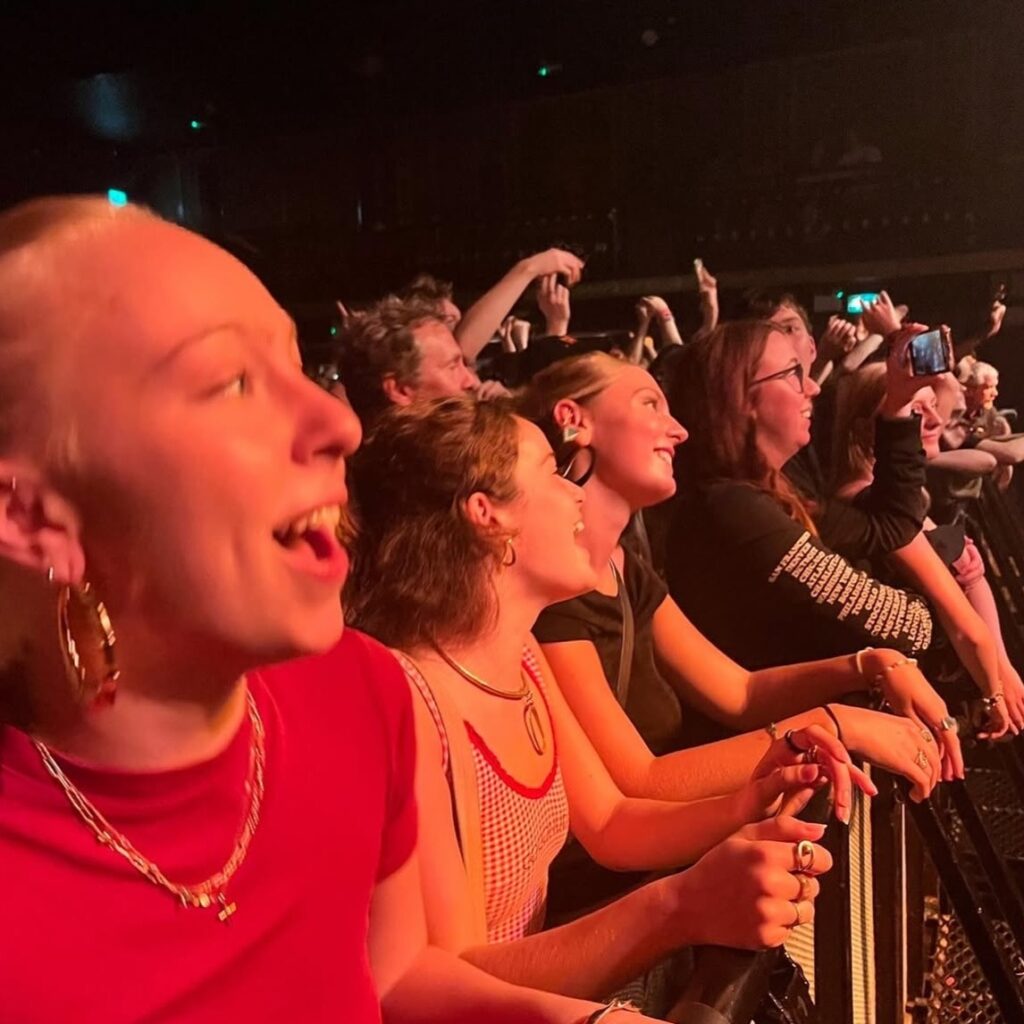Featured image: Kate Dening
I’m 12, sitting in the car with my dad, sharing the best song I have ever heard. I always feel nervous playing him music – he is the coolest person that I know, and I want to impress him.
I believe I am wise beyond my years, and it is essential that he knows that I get this song in its entirety.
The moment the first notes on the keyboard chime, and the drum’s infectious beat kicks in, I notice his fingers tapping on the steering wheel.
When the song ends, he asks me to play it again. I’m ecstatic.
Suddenly, this song becomes the soundtrack to every car journey with my dad. We both know the lyrics by heart and laugh at every painfully honest lyric that Kate Nash sings:
“My fingertips are holding on to the cracks in our foundations.”
When I’m 14, I can’t find the words for the feelings I’m experiencing.
The lyrics that once amused me now sadden me, capturing the emotions I don’t know how to articulate.
As I navigate this whirlwind of new feelings, Nash’s words about cracks in her foundation aren’t just clever metaphors anymore – they felt personal, mirroring my own crumbling sense of stability. Her song becomes a vessel for my frustrations and a safe space to explore feelings of inner discontent.
“Then you’ll call me a bitch and everyone we’re with will be embarrassed and I won’t give a shit.”
When I’m 16, a man called me a bitch for the first time.
My friends and I laugh about it, but the song makes me smile in a deeper way. In a strange and twisted sense, I felt more connected to it.
Having never experienced a romantic connection with a man before, it feels like he’s from an entirely different world. He seems to carry an air of mystery, as though embodying emotions and experiences that have always been out of reach.
The line – “It gives me thrills to wind you up” – perfectly captures my strange delight in provoking emotions between us. I lose myself in the unfamiliar feelings this unchartered territory brings, whether exhilarating or tumultuous.
“Yes, it was childish, and you got aggressive, and I must admit I was a bit scared.”
I knew what it feels like to be scared of a man by the time I’m 20.
I remember sitting across from him, feeling the weight of his gaze – a significance I couldn’t quite name. That helpless feeling stayed with me like a shadow, threading itself into the spaces I occupied.
Fear has a way of creeping in, uninvited but all too familiar. It whispers that men are not from another world – they are from this one, and they can hurt you.
Listening to Foundations again with fresh ears, I recognise how much fear had threaded itself into the lyrics.
Now I’m 22, seeing Nash perform live at New Century Hall in Manchester, the city I have called home for four years.
An absolute powerhouse, she bursts onto the stage with an abundance of energy so infections that the crowd can’t help but move with her.
Her setlist blends newly released album: 9 Sad Symphonies, with the iconic tracks from her debut. The energy in the room is unmatched.
Nash embodies bold confidence, owning the stage. At one point in the set, she came into the crowd and danced alongside everyone. We crouch down beside one another, jumping up together in total elation.
When she launches into her Made of Bricks album, my brain goes into tunnel-vision – I feel like I’m 12 again, in the car with my dad, swept up by untouched excitement.
Then it’s time for Foundations, a song that has grown alongside me. I’m unsure how my body will respond.
My hands go up in the air, and I catch myself jumping with the crowd in ecstasy.
This isn’t the same Foundations I grew up listening to – it’s something new.
The shift isn’t in the song; it’s in me. As I’ve matured and my emotions have deepened, music has become a translator for the unspoken.
It’s a revelation: the power of art lies not only in its creation but in its ability to evolve with its audience.






Leave a reply